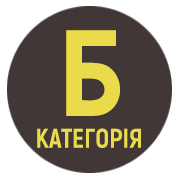GENDER-SENSITIVE LANGUAGE IN SLOVAK COMMUNICATION SPACE
DOI:
https://doi.org/10.32782/folium/2025.6.17Keywords:
inclusive language, gendered language, communication, inclusivityAbstract
In the last decade, gender-sensitive or inclusive language has entered the communication of many actors in Slovak civil society, be it the media, public institutions, various associations or individuals. It reflects feminist ideas that language is a tool of oppression and makes women invisible, especially in the professions and in various functions, and is involved in denying access to economic resources. Recent versions of inclusive language seek to take into account, within a post-binary conception of gender, so-called non-binary persons. The attempts to take into account the different subjects of speech are manifested in the Slovak language either by graphic signs, doubling (splitting) or the use of neuter nouns. This present review study examines the occurrence of inclusive language in the Slovak media, but also in political language, demonstrating its correlation with the progressive part of the political spectrum. It also addresses the pragmatic function of language and examines the impact of using inclusive language in different forms on making communication more or less difficult. Finally, it mentions a survey about how Slovak speakers perceive the inclusive language.
References
Bohunická, A., & M. Kazharnovich (eds.). (2023). (Im)pulzy súčasnej jazykovedy. Bratislava, Univerzita Komenského.
Bohunická, A., Khazarnovich, M., & O. Orgoňová. (2023). Sociálna inklúzia a používanie jazyka. Bratislava: Univerzita Komenského.
Braun, F., Sczesny, S., & D. Stahlberg. (2005). Cognitive effects of masculine generics in German. An overview of empirical findings. In: Communications, 30, 1–21.
Braun, F., Sczesny, S., Stahlberr, D., & L. Irmen. (2007). Representation of the sexes in language. In K. Fiedler (Ed.). Social communication. A volume in the series Frontiers of Social Psychology. (Series Editors: A. W. Kruglanski & J. P. Forgas). New York: Psychology Press, 163–187.
Butler, J. (1993). Bodies that matter: On the discursive limits of “sex“. New York: Routledge.
Gerbery, D., & R. Džambazovič. (2011). Inovatívne orientácie v sociálnej politike. Perspektíva sociálnej inklúzie. Bratislava, Univerzita Komenského v Bratislave.
Horecký, J. (1959). Slovotvorná sústava slovenčiny. Bratislava: Vydavateľstvo Slovenskej akadémie vied.
Horváth, M. (2023). Modelovanie eseje. Bratislava: Univerzita Komenského.
Jeffreys, S. (2014). Gender Hurts: A Feminist Analysis of the Politics of Transgenderism. New York: Routledge.
Loison, M., Perrier, G., & C. Nous. (2020). Introduction. Le langage inclusif est politique: une spécificité française? In: Cahiers du genre, 69, 5–29.
Moyšová, S. (2020). Koncept politickej korektnosti vo frankofónnom mediálnom a politickom priestore. In: Jazyk a politika: na pomedzí lingvistiky a politológie 5, Bratislava: Vydavateľstvo Ekonóm, 261–269.
Moyšová, S. (2024). Aspekty inkluzívneho jazyka nielen v slovenčine, in Kultúra slova, ročník 58, č. 1, 3–13.
Ondrejovič, S. (2020). Purizmus v diskriminačnom diskurze II. In: Slovenská reč, 3, 243–261.
Orgoňová, O. (2023). Používanie jazyka v digitálnej ére. Aspekty inkluzívneho jazyka. In: Slovakistika v súvislostiach. Tradície a perspektívy. Zborník z medzinárodnej vedeckej konferencie 19.-21.4.2023 v Belehrade. Belgrade, 215–225.
Pekarovičová, J. (2016). Rod ako sociálna a gramatická kategória. In: Slovenčina (nielen) ako cudzí jazyk v súvislostiach II. Bratislava: Univerzita Komenského, 38-55.
Pekarovičová, J. (2023). Rodový diskurz a jeho fungovanie v akademickej praxi. In: Studia Academica Slovaca 52. Bratislava: Univerzita Komenského.
Popovičová Sedláčková, Z. (ed). (2021). Štýl – komunikácia – kultúra. Bratislava: Univerzita Komenského.
Puchovská, Z. (2023). Tension entre l´ancienne et la nouvelle graphie. Quels enjeux pour la didactique du lexique en français langue étran- gère? In Recherches et Applications, Le fran- çais dans le monde; č. 73, CLE International, 125–137.
Rabatel, A. & L. Rosier (eds). (2019). Les défis de l´écriture inclusive. Le discours et la langue, č. 11, EME Editions.
Račáková, A. (2016). Hybridizácia v prekladoch textov z oblasti rodovej rovnosti (na príklade analýzy vybraných termínov). In Huťková, A. & M. Djovčoš. Preklad a tlmočenie 12. Hybridita a kreolizácia v preklade a translatológii, Banská Bystrica: Belianum.
Spender, D. (1990). Man Made Language, Pandora Press, London.











